
43 minute read
The Healthy Channel: John Appleton
I have been writing articles on topics related to our health for a number of years and in Channel I keep you up to date on ways in which we might improve our health by becoming more aware of the many options that are available to us.
Kidney Stones John Appleton. Prevention can be easier than treatment As I see it - by John Appleton
There are few of us who would not have heard about the excruciating pain that can be associated with kidney stones. We hear stories about the pain being worse than that endured by women during childbirth.
Kidney stones come in several forms, with the most common being calcium stones which are composed of calcium in combination with either oxalate or phosphate. They occur when there is a lot of calcium circulating in the blood. Uric acid stones occur when there are excess amounts of uric acid in the blood which can happen if the diet is high in animal protein. Another form of kidney stone is known as a struvite stone. These are often composed of magnesium ammonium phosphate and they tend to occur in people who have frequent urinary tract infections.
The pain that is caused by kidney stones is as a result of a stone blocking the ureter (the ‘tube’ that drains the kidney into the bladder). When urine cannot pass down the ureter there is a backup in the kidney which is not able to expand to accommodate the additional fluid. This is called hydronephrosis.
Something we can all do every morning to help our kidneys is to drink two large glasses of tepid filtered water with the juice of a lemon squeezed in them. It’s the citric acid in the lemons that does the trick. Not only can it help prevent kidney stones from forming, it can help break up small stones.
Very small kidney stones can often pass on their own but for the larger stones surgical intervention is often necessary. Shock wave treatment known as lithotripsy is a well-known option. Extracorporeal shock wave therapy (ESWL) was first used in 1980 and it literally causes the stone/s to shatter. Another procedure called ureteroscopy involves passing a small telescope up through the urinary tract to where the stone is located and a laser goes to work to break the stone into pieces. A much more invasive option for very large stones is called percutaneous nephrolithotomy which involves surgery through the back. All of the above are quite significant interventions; they don’t always provide an instant fix and there can still be a lot of pain involved. As I see it the more we can do to avoid the need for medical interventions and of course the pain associated with having a kidney stone the better. The good news is that supporting normal kidney function is simple and it’s not expensive. First on my to-do list is drinking at least two litres of filtered water daily. This can be done over the 24 hour period. A glass of water at bedtime may mean getting up in the night but it’s really important to reduce the concentration of the urine during the night when the kidneys are working hard to process waste. The colour of the urine should for the most part be clear to very light yellow. Urine is yellow in colour due to a pigment known as urochrome which is produced as a result of the breakdown in the liver of the heme part of the haemoglobin from old red blood cells
Something we can all do every morning to help our kidneys is to drink two large glasses of tepid filtered water with the juice of a lemon squeezed in them. It’s the citric acid in the lemons that does the trick. Not only can it help prevent kidney stones from forming, it can help break up small stones. The more citric acid we obtain from the lemons the better the protective benefit.
Another interesting option popped up on my radar some years ago. It’s a South American herb (Phyllanthus Niuri) from the Amazon rainforest known as Chanca Piedra which literally means ‘stone breaker’. It has been used for generations by indigenous people to support the elimination of gallstones and kidney stones. Chanca Piedra is readily available online.
Of all the conditions that send us off to the doctor, kidney stones could be one of the easiest to prevent. It involves little cost but it does require an ongoing commitment to some simple lifestyle changes.
John Appleton john@johnappleton.co.nz 09 489 9362 www.johnappleton.co.nz
Calling all By Sonia Thursby, CEO, Yes Disability under 30s with a disability
Sonia Thursby.
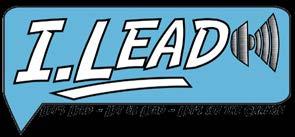
The collaboration between YES and I.LEAD has become a breeding ground for innovation and ingenuity, with projects and social initiatives being developed and augmented daily, to meet the needs and aspirations of youth with disabilities within our community.
One such project that has come out of the woodwork is “30 under 30”, a social media campaign created with the aim of amplifying the profiles, views and voices of youth with disabilities in Aotearoa, showcasing the amazing work they do.
Much like the “Humans of...” series, we are looking to profile 30 youth with disabilities who are currently doing amazing things in their community, whatever that looks like. Starting in August, one profile will be showcased each week for 30 weeks on all our social media and online platforms. Some of the youth with disabilities from our I.LEAD Committee will also be interviewing those profiled as part of our Thursday Facebook Live updates.
This is all to showcase not only the amazing work youth with disabilities do currently, but also their potential as future leaders of the disability sector. YES has always been an advocate for empowering youth with disabilities to celebrate their achievements and realise their ‘big dream’, and “30 under 30” was hand-made in collaboration with youth representatives from our I.LEAD Committee to help meet this need.
We are currently looking for applicants who want to be featured in this series. If you are a young person under 30 years of age, have lived experience of a disability, and want to be part of the action, send through a bio of who you are, what you do, and your amazing achievement, success, skill or work.
Contact us on Facebook (fb.com/ileadconferencenz) or by email (jamiem@yesdisability.org.nz) for more information and to submit your application. www.yesdisability.org.nz
Trust Manager Carol White accepts cheque from Brendan Green Perpetual Guardian
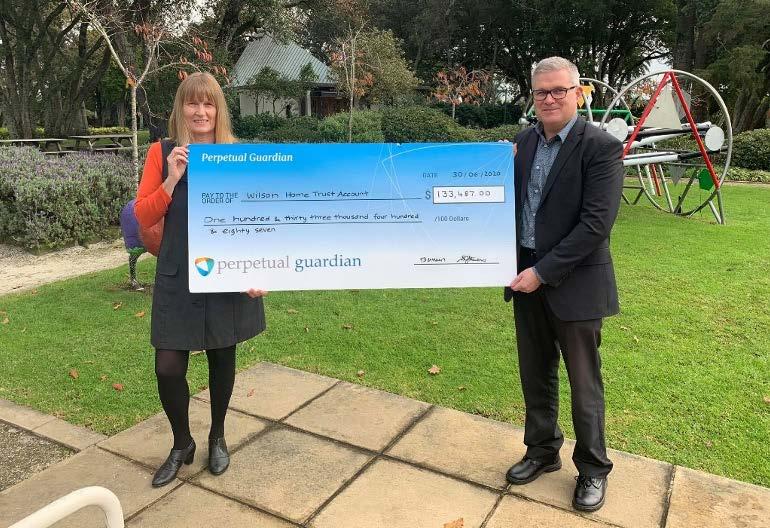
A very special gift from William Neville Grant’s Estate
Just before COVID-19 level four lockdown, we received an unexpected phone call from Perpetual Guardian to advise us of a bequest left to the Wilson Home Trust. We were advised this was from the William Neville Grant estate but we were taken completely by surprise when a cheque for $133,487 was able to be presented to us in late June.
We wanted to know a little bit more about William Neville Grant and why he chose the Trust as his final beneficiary. Born in 1887 in Albertland on the Kaipara Harbour, William had seven siblings – four brothers and three sisters. The family were all hard workers, moving around the North Island working on the land and clearing bush for farmland. William eventually settled down, buying a farm on Great South Road in Auckland.
According to one of his grandchildren, he was always a gentlemen, very kind and thoughtful. He did not have an easy life – losing his wife during the birth of his premature twin boys and then one of these sons in an accident as a 19-year-old. He remarried and adopted a third child and went on to live a long and happy life until he died of cancer at age 71. Shortly before he passed away he learned his land was going to be taken for future motorway development and it is the sale of this land to Auckland Council, that resulted in the basis of today’s legacy left to the Wilson Home Trust. Throughout his life, William always helped other people in need and realised and understood that continued assistance and income made a huge difference in people’s lives. His descendants feel happy and proud that his legacy lives on to help others as he wished it to do and we are extremely grateful for his very generous bequest.
1 Saint Leonards Road, Takapuna 09 488 0126 or 0800 948 787, www.wilsonhometrust.org.nz
With Councillor Richard Hills, North Shore representative on Auckland Council. Investing in our community
Richard Hills.
Looking at the rest of the world right now, I realise how far we’ve come in 2020 and how lucky I feel to live in our community and New Zealand. It’s been a tough time for many of you and I acknowledge that, despite having made it through lockdown, the financial strain continues for many.
I want to thank you for the support and engagement through the emergency budget process.
It was the toughest decision in my career to date, COVID-19 removed half a billion dollars from the budget for our city, 1000 people have lost or will lose their jobs at Auckland Council, hundreds of projects have been delayed and you will notice some cuts to services this year. The decision was made easier by the unity between myself, my fellow North Shore Councillor Chris Darby, all local boards, and, importantly, the community.
I took the time to read through the 3000+ submissions from the North Shore and, although there were many different ideas and priorities, they reflected the best of us and a community I’m so proud to represent: • We are worried about friends and whānau who are already vulnerable and those that haven’t struggled before. • We want to pay our part and help – many said you could afford to pay and some even offered to pay more if it meant fewer jobs were lost, and fewer services and projects were cut from our community. • We value connection. Repeatedly submissions urged us to save our libraries, art facilities, public transport, sport facilities, environmental projects – all things and places we rely on and use together. • We want to keep momentum on the investment in infrastructure of recent years. • We feel a responsibility for future generations. There was a clear request we don’t pass on debt, whether financial or environmental. There were also some specific requests that Cr Darby, the boards, and I managed to save or secure, which were all at risk at a lower rates rise: • The Hurstmere Road streetscape and stormwater works will now continue as one piece of work but on a slightly delayed schedule due to COVID 19. There were a few sleepless nights that I can only imagine were amplified for business owners who have already made it through so much so it’s a huge relief to have this funding saved. • There will now be no cuts to funding for locally driven initiatives – this is funding from the local board straight out to the community for important actions that support our volunteers and services. • There will now be no cuts to library hours, no change in the mowing schedules for our parks and sports fields, and no change to the maintenance of our bins and public toilets. • Public transport services now won’t be cut and the Gold Card subsidy for over 65’s will not be cut either. • Auckland Transport Safety projects will be prioritised to prevent serious injury and death. • We are funding $224m of emergency infrastructure to deal with the worst drought in Auckland’s history. It’s fantastic to see the recent openings of our upgraded Sunnynook Park and Devonport Playground – we need this type of investment to continue.
Feel free to continue to contact me about local issues on Richard.hills@aucklandcouncil.govt.nz
A ‘global experiment’ in education and pedagogy
David Boardman.
The past months have forced educators to reflect upon their practice and quickly adapt to a changing educational environment. For some, moving to online teaching was a simple extension of what they were already doing, while for others it has been a journey of discovery. Students have also been forced to adapt quickly and change the habits that have been formed over up to 13 years in education and attending school.
International studies are showing that the experiences during this time are far from equitable, often highlighting differences between the socio-economic background of schools, regions and countries as infrastructure and access to technology has been critical. In New Zealand we have been lucky compared with many countries. However, for those students whose laptops, modems or remote learning packs are now only just arriving, weeks after they have returned to school, the potential impact on their education is undeniable.
What is important though, is to focus on the positives that we can take away from this ‘global experiment’ in education and pedagogy. While it did not work for all, many students have provided feedback that they found the flipped classroom approach to be very productive. They enjoyed being able to plan their own learning time, no longer restricted by a set timetable. The ability to work undisturbed for two-three hours on one task, then when they were ready switch to another subject not only allowed the development of time management skills, but more importantly provided an opportunity for deeper learning to take place. Many also now have the confidence and know that when they leave school, be it to go on to university or to take up a workplace, they have the ability to deal with the challenges they will face and can self-manage their work.
Globally, much of the talk has been around the importance of relationships and connections in education, as this was one common area that students and teachers alike missed about being in a school environment. It has highlighted the work of Abraham Maslow and how his work The Hierarchy of Needs is a fundamental underpinning to all pedagogical approaches whether in a physical or virtual classroom. If these needs are not met with our students, how can we expect them to be effective learners?
According to Maslow, before a student can hope to tackle demanding cognitive processes, such as learning new skills or acquiring knowledge, they must first fulfill their basic physiological needs. It’s just no good trying to get a kid who’s tired or hungry to learn that the square of the hypotenuse is equal to the sum of the squares on the other two sides. (To be honest, it’s probably hard enough to get a peppy, wellfed student to pay attention to that.) Add to all that the fact that half of them didn’t get to sleep until after 2am and may only have eaten a bag of chips for breakfast. And then we get frustrated with them because they’re not giving their full attention.
We have been presented with a once-in-a-lifetime opportunity to reflect, globally, on education; to ask questions around how we structure days, what is really important and also ensuring that our students have the support and feel well prepared to be effective learners. The students of today have different opportunities before them, the expectations on them have changed, and for many how they like to learn has changed compared with those of 10-15 years ago. We need to ensure that the educational models and practices that we provide them, not only here in New Zealand, but around the world, are meeting those needs and enabling them to achieve and flourish.

Claudia Holmes is a legal executive in the property team at Davenports Harbour and specialises in residential property and refinancing.
Buying Property: Solicitor’s Approval
Claudia Holmes.
Claire and David were looking at buying a rental property. They had spent numerous weekends over several months going to open homes to view different properties and one weekend they found what they thought was an ideal investment property.
On Saturday Claire and David were advised that there were other interested buyers and they felt pressured to sign an agreement that day. Claire and David were fairly confident with proceeding so signed an agreement but made it subject to a “solicitor’s approval clause” which they thought would allow them to easily pull out of the agreement.
The day after the agreement was signed, David got cold feet and he discussed his concerns with Claire during the day on Sunday. Together Claire and David decided they did not want to go ahead with the purchase because the property was not going to make the required rental returns.
On Monday morning David phoned their solicitor and asked them to cancel their purchase agreement. David was surprised when the solicitor advised they could not simply change their mind and they had to have valid legal reasons for cancelling the agreement. The solicitor’s approval clause was limited to approving the form of the contract and title to the property. The solicitor spent some time trying to assist but, because the agreement was a standard form with usual terms and conditions and there were no interests registered on the property title, there was no reason the solicitor could give to validly cancel the agreement.
Claire and David had no other conditions in their purchase agreement other than the solicitor’s approval clause and had no choice but to proceed with their purchase. Claire and David have now settled on the purchase of a property which is not a good investment.
This scenario outlines why it is important to seek legal advice before signing an agreement to purchase property. A solicitor’s approval clause is very narrow and is not an easy way to cancel an agreement. It is important for purchasers to undertake thorough research on a property. A solicitor can help review the terms of an agreement to ensure it incorporates appropriate conditions for the type of property being purchased.
Claudia Holmes, 09 601 8885 claudia@dhlawyers.co.nz www.dhlawyers.co.nz
Tammy McLeod (BA LLB) is a director at Davenports Harbour and a trust and asset structuring specialist. Tammy leads the Davenports Harbour Trust Team and enjoys providing clients with advice and assistance on a broad range of issues involving the structuring and establishment of asset plans, interpretation of trust deeds, the management and administration of trust funds and trust disputes. An important part of Tammy’s practice is Tammy McLeod. reviewing existing asset holding structures to ensure they achieve the needs and requirements they were established to meet. She is also experienced in Property (Relationships) Act issues and advises clients on both contracting out agreements and separation. Tammy is a past president of the Auckland Woman Lawyers’ Association and is the current vice-president of the North Harbour Club. James & Megan, Mike & Delia
James and Megan owned 50% of the shares in a bar. The other 50% was owned by their good friends, Mike and Delia. Mike and James had gone to school together and had always talked about owning a restaurant/bar together one day. That dream finally happened around five years’ ago and they opened their doors in a tourist hotspot, in central Auckland. They were keen to get lots of custom from visitors on cruise boats as more and more were visiting Auckland.
The bar went really well in the summer months and then slowed up in the winter with less visitors to Auckland, but was still viable. James and Megan had used their family home as security to raise the funds to put into the business. James had also given personal guarantees to trade suppliers and also their landlord. They owned their shares in the business in their personal names. Mike and Delia on the other hand had their family home and the shares in a trust. James and Megan had thought about a trust, but it seemed like a lot of money to set it up and then they simply didn’t get around to it.
Then in early 2020 Covid 19 struck. The bar had to close for eight weeks. The cost of closing the doors by itself was enough to put the business under immense pressure, but coupled with the fact that there would be no cruise ships or tourists for the foreseeable future, James and Mike had to seriously think about their options.
The debts were high – they owed money to their employees, their suppliers and their landlord. The bank was getting nervous. James and Mike were worried about the tax they would need to pay at the end of August. They took advice and decided to put the company into liquidation.
It soon became clear that James and Mike were in very different positions. Mike’s assets were all protected within his trust, while James were in his personal name which made it a lot easier for the personal guarantees to be called up. While Mike wasn’t looking to walk away from his responsibilities and debts, having the trust gave him options that James simply didn’t have.
Trusts are designed to protect assets and give flexibility. In good times they are like insurance – there if you need them. In bad times, your trust may give you choices. If you are in business you definitely should consider putting your assets into a trust to give you flexibility in good and bad times.
Tammy McLeod, 09 915 4386 tammy@dhlawyers.co.nz www.dhlawyers.co.nz
davenports HARBOUR LAWYERS
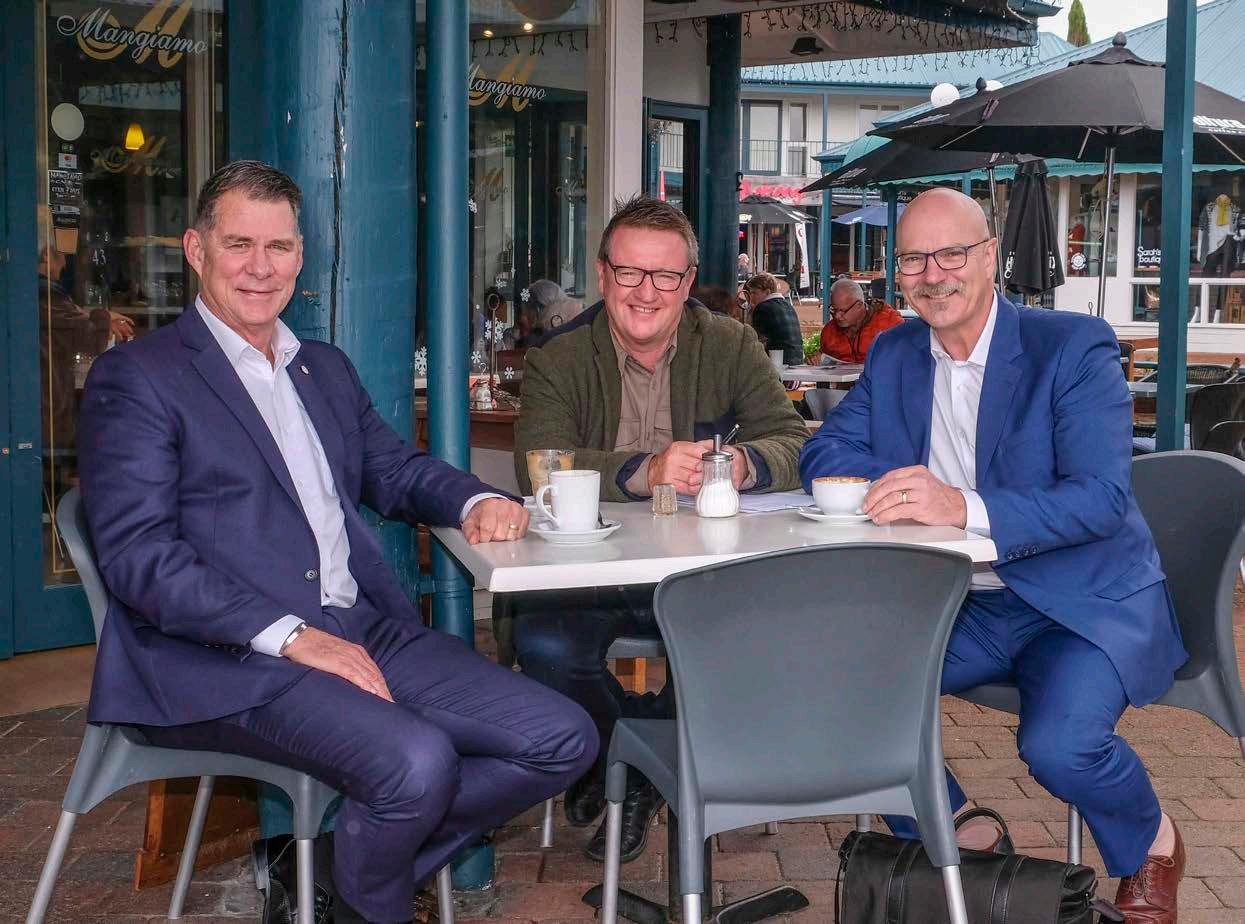
Richard Stevens, Aidan Bennett and Lester De Vere.
A chat with Lester and Richard… ABC Business Sales duo for the North Shore
By Aidan Bennett
ABC Business Sales has been around for 32 years and operates nationwide. On the North Shore the business is represented by two very well-known local identities, Lester de Vere and Richard Stevens. Both were born and bred on the Shore, met at Westlake Boys High School, and more recently were on the Westlakers committee (the alumni organisation) together for 10 consecutive years. So the Shore is in their DNA. Lester, who is in his fifth year with ABC Business Sales – and has been a regular contributor to Channel Magazine for quite some time – has recently been joined by Richard, creating a dynamic duo helping North Shore business people achieve value from their businesses when it is time to exit. Channel Magazine’s Aidan Bennett caught up with them for a chat in early July. You can also view the video of this interview online (www.channelmag.co.nz).
Both Lester de Vere and Richard Stevens come from strong business backgrounds.
Lester had a professional photography business for 30 years, ending up with a base in Barry’s Point Road. He had the great privilege of photographing a good number of families on the Shore and some have even trusted him enough to sell their businesses for them. After photography he transitioned into business broking and now is in his fifth year with ABC Business Sales. Lester says also being a landlord has had its advantages in rounding out the experience in understanding the needs of a transaction.
Richard worked in food manufacturing, ran Mövenpick Ice Cream, had a senior role at Fisher & Paykel and more recently was in the professional services sector with large advertising agencies. He says he is now taking his love of the business of businesses and moving into next phase. (On a side-note, Richard was one of the writer’s first advertising lecturers at ATI (now AUT) back in the early
‘80s. So his business expertise does go back decades.)
When asked why they decided to team up in business sales, the two say they had numerous discussions over the years when working and socialising together as part of the Westlakers initiative. They always got on well and believe their different skill sets completed a good combination for all round success, for their customers and for themselves. So, when the timing was right Richard came in to join Lester at ABC.
“The benefits of the journey we’ve both walked, as business owners and directors, is that we know how to walk in the owners’ shoes,” says Lester de Vere. “We know what they are going through, and because of our past experiences, have the relationship skills to understand the other person’s needs and objectives.”
The two are seeing lots of activity in the market post-COVID-19.
“There are clearly big opportunities in the market right now with lots of people looking to purchase,” explains Richard Stevens. “In fact we are in the unusual situation of demand outstripping supply. We simply don’t have enough businesses to sell.”
The two say that this makes it a perfect time to list.
“With the unsettled global situation – COVID-19, Hong Kong, BREXIT, the US politically – people are flocking back from overseas. It’s the ‘brain gain’ which is excellent for New Zealand and great for the economy as it’s keeping investment here that might normally have gone offshore.”
The benefits of the journey we’ve both walked, as business owners and directors, is that we know how to walk in the owners’ shoes,” says Lester de Vere. “We know what they are going through, and because of our past experiences, have the relationship skills to understand the other person’s needs and objectives.
Another factor they point to is the historically low interest rates. Money has never been easier to get and the returns for money invested in a business will traditionally deliver around 20% – not the 2% of a bank deposit.
Lester and Richard say that the large number of COVIDinduced redundancies will bring new people into the market and there will also be companies who are looking to grow through acquisition.
“To those vendors who are sitting on the fence, perhaps asking themselves if now is the right time to sell my business – the


answer is a very definite yes,” adds Lester. “The future economic outlook is mixed. If you go to market now you will have a greater chance of preserving the value of your business. There are also businesses that aren’t affected in this environment – such as those with a recurring subscription-based model. There is strong interest out there for those businesses that we are seeing on a daily basis.”
So, if North Shore businesspeople are thinking of selling their businesses, how do they start the ball rolling?
“Getting the ball rolling starts with a market appraisal which is done around a board-room table with around 10 seasoned brokers reviewing the details,” explains Lester de Vere. “This is done along with using statistical data of recent sales in that business sector – to give a ‘window’ of where we see the market value being.
“Prior to that, our strengths really are on spending time with the business owner understanding who they are and how they have run their business they have owned for, in some cases, decades.
“The back story is incredibly interesting and helps us understand what a ‘right fit’ looks like from a purchaser’s point of view.”
“An example of that is a food manufacturing business that we listed earlier in the year,” says Richard Stevens. “We received 60 expressions of interest and had two full price offers just five days after listing. They tell me this is unheard of.”
Richard says the vendor has since referred them to four of his business-owner friends due to his liking for them being “straight talking guys with no corporate bull”.
“The feedback we get is that we quickly understand peoples’ businesses and what makes them tick and how we can maximise the value for those business owner’s lifetime of hard work.
As part of ABC Business Sales’ network we have a backup team assisting with all aspects of the process along the way, such as marketing, legal and production requirements.”
If you are thinking of selling your business, contact the North Shore’s home-grown team – Lester de Vere or Richard Stevens – they say they’re a Shore Bet!

Lester de Vere, Phone 0274 599 773 or email: lesterd@abcbusiness.co.nz Richard Stevens, Phone 021 375 149 or email: richards@abcbusiness.co.nz Visit: www.abcbusiness.co.nz
Accountancy with Graham Lawrence of Bellingham Wallace.
Impact of travel restrictions on tax residency
Graham Lawrence.
The global COVID-19 pandemic has caused havoc for everyone and the economic effects are being felt. The hidden impact of this pandemic will still come to light for many. Prudent business owners and individuals will have a tax strategy in place, including the impact on any employees not resident in New Zealand.
This pandemic may have inadvertently tampered with this: travel restrictions impact not only freedom of movement but can impact tax residency. The travel restrictions have changed how people do business. This will not only impact the individual who travels globally but may also impact their business’ tax residency.
Importantly, “residency” has distinct meaning for immigration and tax purposes. It is possible to have residency status for immigration purposes, but not be a tax resident, and vice versa.
There are two tests for tax residency, the primary test being the “permanent place of abode” test and the 183-day rule test. The permanent place of abode test looks at a person’s duration and frequency of return to a country, economic and social ties, intentions and living arrangements. It is possible for an individual to have a permanent place of abode in more than one country.
The second test, the days count test, states that under ordinary circumstances, a person will become tax resident of New Zealand if they are present in New Zealand for more than 183 days in a rolling 12-month period.
When New Zealand went into lockdown, a large number of visitors and visa holders were prevented from leaving the country. Immigration New Zealand permitted an automatic extension of all visas until 25 September 2020.
On 22 April 2020, Inland Revenue (”IR”) issued a public statement for tax agents relating to the unintended and unprecedented consequences for the tax residence rules caused by the COVID-19 pandemic. These consequences are particularly relevant for people stranded in New Zealand who were not intending to be a tax resident. In relation to individuals, the public statement states (our emphasis):
In normal circumstances, an individual will become tax resident in New Zealand if he/she is personally present in New Zealand for more than 183 days in total in a 12-month period. The COVID-19 emergency could result in individuals having to stay in New Zealand longer than 183 days despite their plans to leave. An individual will not become a tax resident in New Zealand under the day-test just because he/ she is stranded in New Zealand. The extra days when a person was unable to leave will be disregarded if a person leaves New Zealand within a reasonable time after they are no longer practically restricted in travelling. The day-tests are based on normal circumstances when people are free to move.
This echoes the OECD guidance on cross-border issues arising from the pandemic. The OECD Secretariat has issued guidance on implications of the COVID-19 crisis on cross-border workers and other related cross-border matters. The OECD notes that tax issues have arisen where there are cross-border workers or individuals who are stranded in a country that is not their country of residence. These issues have an impact on the right to tax between countries, which is currently governed by international tax treaty rules that delineate taxing rights. The OECD Secretariat’s general view is that under Double Tax Agreements between countries, an individual should not become resident in the country they are stranded in.
The IR statement assists individuals who actively manage their travel movements, are relying on the transitional tax residency exemption period, to control or manage a business. This will also assist short-term business visa holders relying on a 92-day tax exemption.
Therefore, if an individual leaves New Zealand within a reasonable period of time after the lockdown was lifted and it was practical for them to travel, then the extra days spent in New Zealand due to the travel restriction would not count towards the days count test and their tax residency status will not be impacted.
If an individual does not leave New Zealand as soon as is practical after lockdown is lifted, they may run the risk of being deemed a tax resident of New Zealand and will be subject to tax on their worldwide income (with some qualifying for the transitional residency exception).
Travel restrictions under COVID-19 significantly disrupted the business travel between countries. For those individuals who are company directors, their personal tax residency may impact the tax residency of the company if they are exercising management and control.
Hopefully tax authorities will be pragmatic about the travel restrictions and look at the operational model of businesses before making decisions based solely on director control and management.
For New Zealand directors stranded elsewhere, it would be prudent to check what the rules around extended stays in that country, especially if the director finds themselves restricted from travelling for some time and the country does not have a Double Tax Agreement with New Zealand. More articles on tax residency can be found at www.bellinghamwallace.co.nz.
By Graham Lawrence (Director) and Carla Cross (Senior Tax Manager) Phone: 09 309 7851 Visit: www.bellinghamwallace.co.nz
LIGHT IT UP WITH



At Benefitz we have an innovative lightbox solution that uses components to create interior exhibition and retail lightbox systems. When combined with our ability to print vibrant printed fabric on our state-of-the-art fabric printing machinery the end result is nothing short of sensational! This printed fabric becomes the face/image that is then backlit by LEDs within the frame. It is all very easy and cost effective.
We have a range of lightboxes – Freestanding, wall mounted, hanging and ceiling options for interior use as well as a wide range for exterior use, with PVC and acrylic face options. We can provide some SPECIAL PRICING to make it easy for you to make a decision. We look forward to helping you.
Parkway Drive, Mairangi Bay Phone 09 477 4700

Have your book produced and published right here on the Shore!
Benefitz, publishers of Channel Magazine, is one of New Zealand’s most diverse manufacturing businesses in the communications space. At their base, on Constellation Drive, they have a team of 85 people and a range of machinery and technology capable of producing items for communication of all shapes and sizes.
The printing of books is proving to be a growth area for the company.
“With our range of digital and conventional printing and finishing equipment we have everything that is needed to produce these books efficiently and cost-effectively,” says Benefitz Managing Director Aidan Bennett. “Having 15 designers on staff means we can also design the book if that is what is required.
“While big books with significant print runs are often printed offshore, it is just as economical and more convenient to print shorter run books right here in New Zealand. So we are a great option for people self-publishing and we also print here for publishers.”
Benefitz have three digital presses that books can be printed on as well as a number of finishing machine options. They produce both soft cover and hard cover books on their inhouse machinery.
“I have considerable experience in book printing and publishing and have members on my team who come from strong book production and publishing backgrounds,” adds Aidan Bennett. “So we can work with customers and guide them through the process, irrespective of their own knowledge of the process.
“In addition, we also work with off-shore businesses if we have projects that are quite clearly better suited to being printed in other countries due to their size and the quantities required.”
An extension of this book publishing capability has been the development of the ‘My Life Story Book’ system by the Benefitz team over the past 18 months. This is an online system for the publishing of life story books. Benefitz developers have created the online system which makes the whole process very easy and smooth for those wanting to publish their own life stories, or those of loved ones.
If you are self-publishing or looking for someone to produce your book, then contact Aidan Bennett and his team at Benefitz.
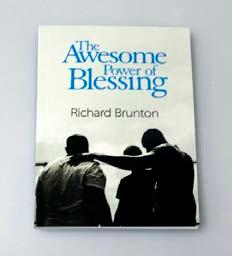
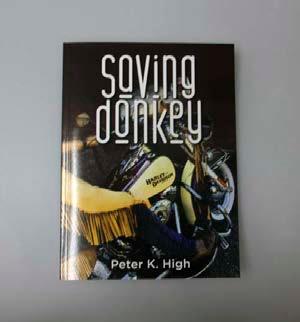


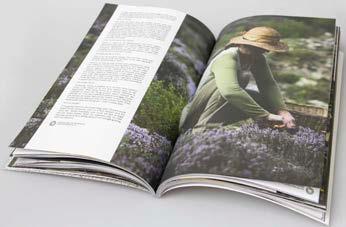
Aidan Bennett, Phone 09-477-4701 or 021-500-997 or email: aidan@benefitz.co.nz Visit: www.benefitz.co.nz
THE FACTS Total solution for small or larger print-runs. It is now economical to print just 50 or 100 books. All done in-house at Benefitz – Print PUR or Hard Case Bind. Great service for self-publishers. Book publishing expertise. We can help get books printed off-shore as well.
Book
My Life Story Book is an online system that simplifies the process for those wishing to tell and record their life stories. You can build your book online easily and then the system enables the easy and cost-effective production of an actual printed book – hard or soft cover – and the life-story will also be preserved online for generations to come. The system has been developed right here on the North Shore by the team at Benefitz.
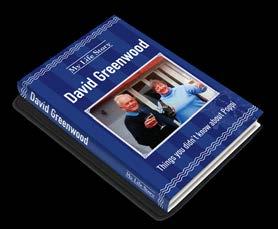
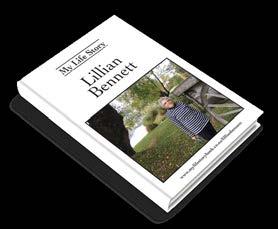
Visit: www.mylifestorybook.co.nz
Or contact Aidan Bennett. Phone 021-500-997 or email: aidan@benefitz.co.nz “I am passionate about helping people tell their stories, so we will make the process very easy for you - promise.”
Cam Calkoen is an inspirational speaker who is bending perceptions to inspire change and an attitude of awesomeness through simple, lasting human truths.
Passionate about the Shore, this column reflects the awesomeness that surrounds us and the potential we all have to achieve a personal best. Cam Calkoen. From adversity we can thrive!
What an interesting seven weeks we have all gone through. It’s given us all a real test of our resilience, adaptability, creativity, relationships and, ultimately, deciding what we’re going to do in each and every moment of each and every day. I hope that as people of the world we take time (when possible) to view the opportunity evolving from this time, show gratitude and further develop our awesomeness.
My oma (grandmother) was a teenager in Holland during the Second World War. If she went out during that time, she had to wear a star on her chest to showcase that she was Jewish and she narrowly escaped being sent to concentration camp. As a result, her and her family went from extreme wealth to having it all taken away but they reminded each other that they were alive. They went from having maids and butlers to hand washing everything for everyone but they reminded each other that they were alive. They learnt to live on nothing but they reminded each other that they could live.
In the years to follow she was the first in her family to move abroad, set up a very successful lunch bar (one of the first) in Wellington, and today, at 97 years of age, she is living independently, driving, walking every day and as sharp as a tack. From adversity we can thrive!
For me, I’ve seen my business cash flow go to zero; all events for 2020 postponed or cancelled (due to COVID-19), carrying the Olympic Torch in Japan cancelled and the scheduled move to LA postponed as the events that were all part of the projected success are no longer there. But I’m happy that I’ve worked as hard as I have over the years, that I have loved ones around me to talk with, that my days were never a measure of life or death, as it was for my oma, and that I still have my dream. Looking at all the lessons from this unprecedented time in our lives, it is exciting what new opportunities exist to fulfil old dreams.
Maybe we become more efficient?
Maybe we have more gratitude?
Maybe we boom like never before?
In a recently recorded podcast I had newer realisations around the power of dreams. My dream (and desire to share it) is what saw me never bullied at school, seeing opportunities, creating awesomeness and through focusing on what I want to do – Travel. Entertain. Connect – not who I want to be. I’ve always had ways of measuring success even when everything is different.
What makes us the same is the fact that we all have challenges and we all have opportunities, what makes us different is our perspective and that’s a choice.
Inspirational Speaker Book Cam and inspire new levels of awesomeness with your team. Contact Cam 021 11 26 598 www.camcalkoen.com

Legally Speaking with Jo-Anne Thomas, Solicitor, Schnauer & Co.
How healthy is your estate planning?
Jo-Anne Thomas.
Our world has recently shifted and the lockdown has highlighted the need to make sure you have your affairs in order. For some clients it was their Wills and for others their Enduring Powers of Attorney.
Realising that you may not be up to date or happy with your current state of affairs should prompt you to taking action early to clearly express your wishes.
Reviewing your legal matters to ensure they continue to be relevant and up to date is a conscious action. People often complete their Wills and Enduring Powers of Attorney, tuck them away and don’t think about them again until they are needed. So why is it important to take them out, blow off the dust and have a look? Because life gets busy and time passes too quickly. Before you know it your situation has changed and your directions may be out of date. Your children may have grown up, or your family and friends have grown older, moved on, or passed on. When the time comes that you need to rely on those legal documents they may not help you in your situation.
Too often we are helping family members of those who did not see the benefit of having Enduring Powers of Attorney in place, or who did not keep them up to date. Those family members are left without legal authority to make decisions for their loved ones. At a time when it is difficult enough having a loved one who has lost capacity, it is compounded by needing to apply to the Court for orders to be able to legally make decisions for them. For those whose Will is out of date, this can complicate the process of dealing with your estate after your death – something that may have been avoidable. We often hear many reasons why these important documents were never done or kept up to date. In our experience it is clear that the emotional and financial cost of having to apply to the
Court for orders is far greater than the cost of keeping these important documents current.
As life begins to increase its pace again and we all become consumed with returning to ‘normal’, we would encourage you all to reflect on your personal situation and take some time to discuss your estate planning needs with your lawyer. Once you have invested the time to secure your wishes for the future, you can tuck it away for another five years (or until your situation changes) when we would again encourage you to review and reflect to make sure it is all up to date.
Schnauer & Co, 1 Shea Terrace, Takapuna 09 486 0177 www.schnauer.com jthomas@schnauer.com
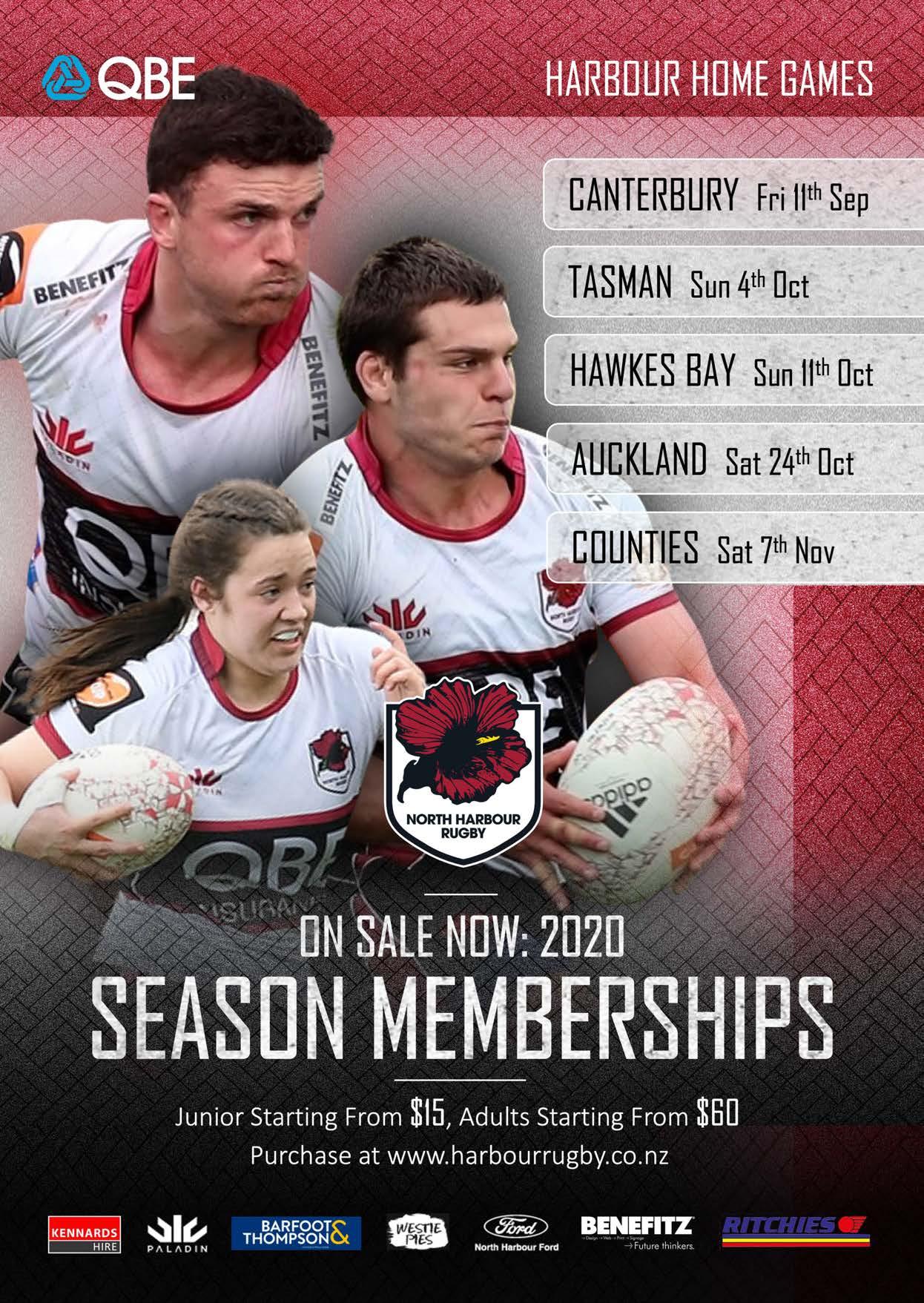

GUNDRY'S GRUMBLES
Simon Gundry is a Devonport and North Shore identity, and character who is known for calling a spade a spade. This is his regular and lively contribution to Channel Magazine. Lockdown – it proved Simon Gundry. that I never want to retire
So, I’d told the Editor in Chief Aidan Bennett – who is in fact remember though, it is actually yours and my money, as taxpayers. the Henry Luce of the North Shore, and if you don’t know who Simon Watts will be our new Member of Parliament come Election Henry Luce is then you need to Google him, that I wouldn’t Day on 19th September. I have met him on a couple of occasions be doing any columns while his two bit rag was online, and and he seems to be a very, very polite and nice gentleman. He does would only be coming back when the magazine was in the more have on his election hoardings that “Simon will get it done”. I would formal mode of print and paper. It’s been at least four months like to know though, Simon, what exactly are you going to get done? now since this rag has hit the news stands of our beautiful It’s all very well to say you are going to get things done, but we need North Shore. specifics before we vote. The North Shore is a safe blue National seat
So, Lockdown – one thing it proved is that I never want to retire. for you, it has been a National seat since 1949 when Martin Finlay lost By the time I got up, checked the letterbox two or three times and it in the election that year. Since then it has been a job for life for a had a couple of cups of tea, attempted to watch our so dreadful National Member of Parliament. breakfast television, had a piece of Vogel’s and Marmite, checked The huge new Ports of Auckland cranes that suddenly arrived the letterbox again and had another cup of tea, by that time it was and dominated our skyline overnight, could anyone tell me please, if 7.30 am – if this is retirement, then forget it. they have seen them working? I don’t believe I have. I’ve seen ships
At the day’s end, when I left my property for an extended walk moored alongside the cranes but I have not seen the cranes moving around the Borough of Flagstaff (Devonport for all you newer at all. Maybe the gentleman from Ports of Auckland could give me a Devonport residents) I’d be cursing at the beautiful weather and still call, as he has done previously, to bring me up to date with the status skies and sulking quietly, knowing that this was the most beautiful of the cranes. and settled autumn weather just perfect for earthmoving and laying We have the General Election coming up in September, we need concrete. Also, great weather for watching Club footy, going for a to vote for the party who will guide us out of the financial mess we sail and even a quick dip. The whole 50 days went fairly quickly, but are heading into. It will be like nothing we have experienced before. as I said at the beginning of this column, there is no way in the world I will retire and live that sort of life.
Just at the end of the lockup I got my Electoral Commission form asking me if the information on it was correct to enable me to vote in the upcoming General Election and referendums. At the Love where Declaration on page two of the form, it reads: “I declare that…. All the information I have privided (should be you live? We are looking for new volunteer provided) is true and corrrect (note the three ‘r’s) and I understand board members to join our board. that giving false or misleading information is a criminal offence.” You would think in this modern world, a Government issued form should have the correct spelling.
I see finally the playground in Devonport has opened, to a bit of controversy as to the safety aspects of certain parts of it. One thing I do know, and I get this from a very reliable source at the coal face, that the original budget for under a $1,000,000, has now blown out to over a $1,500,000. This, I am led to believe was due to incorrect drainage details given to the architect by the Council, who didn’t know where the underground services were. This, combined with bad weather and the lockdown all contributed to the blowout. I f y o u ' r e p a s s i o n a t e a b o u t s e r v i n g o u r l o c a l
It is great to see that the playground has been well used since c o m m u n i t y a n d w a n t t o h e l p p e o p l e t h r i v e , w e w a n t we all got out of lockup, with hundreds of kids, parents and y o u t o j o i n u s w i t h y o u r e n t h u s i a s m a n d n e w i d e a s . grandparents all enjoying themselves on the waterfront. Takapuna North Community Trust supports community development from Hauraki corner to Sunnynook in the Devonport-Takapuna Local Board area. Our mission is to
Talking about playgrounds, I can’t believe the cost of the ensure all members of our community love where they live. We do this through the Parliamentary slide and small playground that came in at over provision of a range of community-led engagement activities, events and community organisation support. $750,000 of which I believe $186,000 was consultancy fees and $175,000 in excavation costs. That would have meant that a large The role would be meetings with our around 2 - other five 3 hours per month and involves attending monthly board board members and providing a governance role to the excavator would have been there excavating a platform for the Trust. playground for 14 weeks and two trucks carting the excavations off site, two trucks for seven weeks apiece would have been carting You will ideally profit sector. have previous experience as a Trustee and experience in the not- foraway the soil. This is an absolutely despicable waste of taxpayers’ If this sounds like you, please get in contact with us for more information by contacting money and should be thoroughly investigated. It is nothing but a Lennie Crawford on lenniec @ xtra.co.nz or 027 2174783 rort. It’s okay though, it’s other people’s money. What we should www.takapunatrust.org.nz www.channelmag.co.nz Issue 112 - August 2020 111










